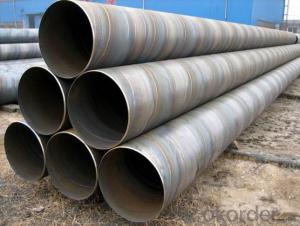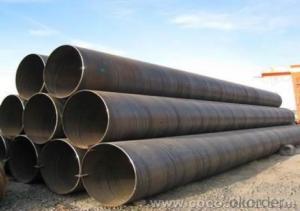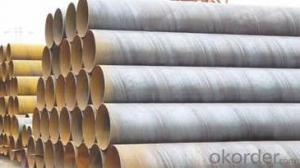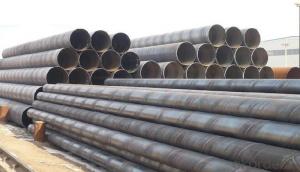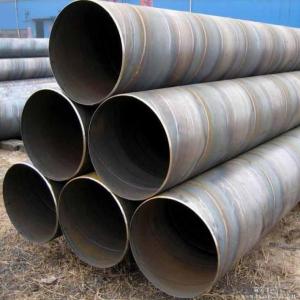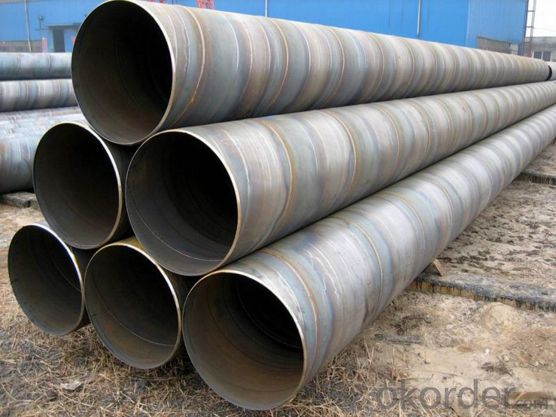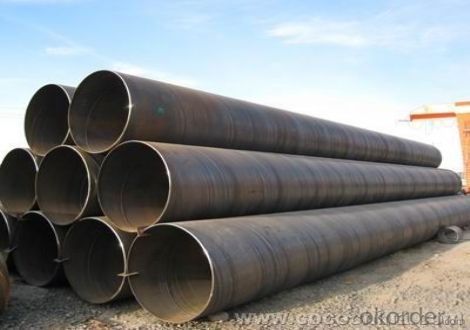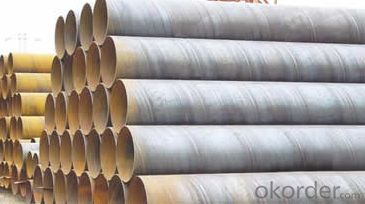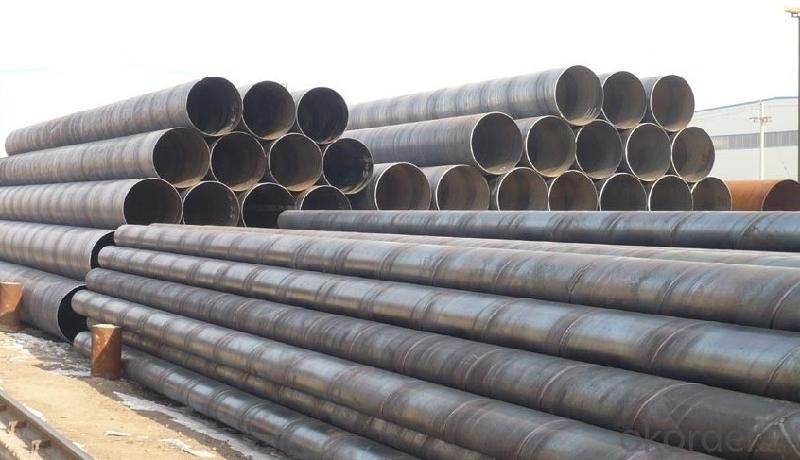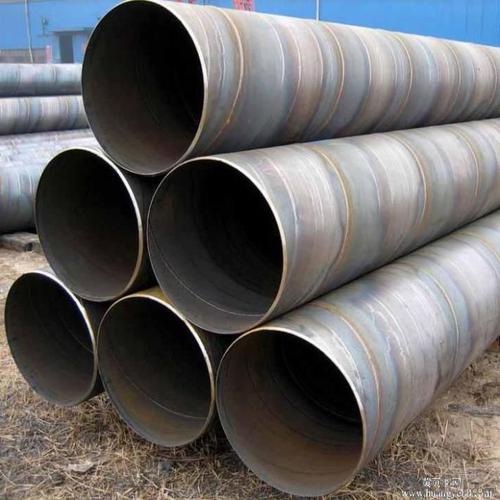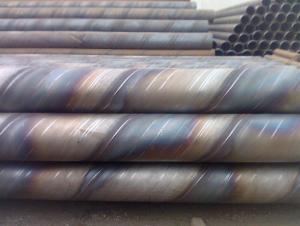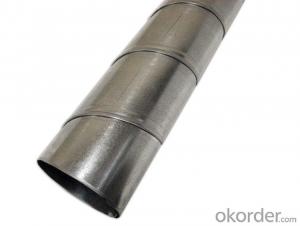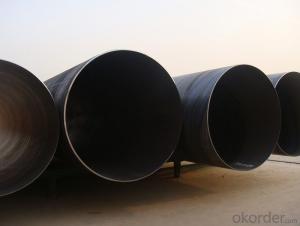SPIRAL STEEL PIPE 36’‘ ASTM API LARGE DIAMETER PIPE
- Loading Port:
- Tianjin
- Payment Terms:
- TT OR LC
- Min Order Qty:
- 5 m.t.
- Supply Capability:
- 3000 m.t./month
OKorder Service Pledge
OKorder Financial Service
You Might Also Like
Packaging & Delivery
Packaging Detail: | standard export packing or as customer's requirement |
Delivery Detail: | within 10 - 30 days |
Specifications
Spiral Welded Steel Pipes and Tubes
1.Material:Q195-Q235
2.Length:1-12m
3.WT:1.0-14mm
4.O.D.:20-273mm
Spiral Welded Steel Pipes and Tubes
Product Description:
1.Material : Q235,Q345,L245,L290,L360,L415,L450,L485,GrB,X42,46,X52,X56,X60,X65,X70,X80,X100
2,Standard: SY/T5037-2000,GB/T9711-2011,API Spec 5L PSL1/PSL2,ASTM A252\A53,ISO3183,DIN17172,EN10217,JIS G3457,AWWA C200,ASTM A139,ASTM A671,ASTM A672
3.Wall thickness: 3.0mm-30mm
4.Outer diameter: φ168mm-3020mm
5,Length: 5m-12m or as your requirement
6,Corrosion protection standard: DIN30670,DIN30671, AWWAC210, AWWA C203, SY/T0413-2002,SY/T0414-2002
7,Application: Oil, gas, natural gas, water pipe, thermal electricity pipe, steel structure engineering, etc
Q195-q345 Material Steel Pipe's Materials
Elements | Chemical Compsition% | Mechanical Property | ||||||
C% | Mn% | S% | P% | Si% | Yield Point (Mpa) | Tensile Strength(Mpa) | Elongation | |
Q195 | 0.06-0.12 | 0.25-0.50 | <0.050< span=""> | <0.045< span=""> | <0.030< span=""> | >195 | 315-430 | 32-33 |
Q215 | 0.09-0.15 | 0.25-0.55 | <0.05< span=""> | <0.045< span=""> | <0.030< span=""> | >215 | 335-450 | 26-31 |
Q235 | 0.12-0.20 | 0.30-0.70 | <0.045< span=""> | <0.045< span=""> | <0.030< span=""> | >235 | 375-500 | 24-26 |
Q345 | <0.20< span=""> | 1.0-1.6 | <0.040< span=""> | <0.040< span=""> | <0.55< span=""> | >345 | 470-630 | 21-22 |
- Q: What is the difference between steel pipes and PVC pipes?
- The main difference between steel pipes and PVC pipes lies in their material composition. Steel pipes are made of a durable and strong metal alloy, while PVC pipes are made of a lightweight and flexible plastic called polyvinyl chloride. Steel pipes are typically used for heavy-duty applications that require high strength and resistance to extreme temperatures and pressure, such as in industrial settings or for transporting liquids or gases over long distances. On the other hand, PVC pipes are commonly used for residential and commercial plumbing systems due to their affordability, ease of installation, and resistance to corrosion. Additionally, PVC pipes are not suitable for high-pressure applications and have a lower heat tolerance compared to steel pipes.
- Q: What is the minimum temperature that steel pipes can handle?
- The minimum temperature that steel pipes can typically handle is around -45 degrees Celsius (-50 degrees Fahrenheit).
- Q: Can steel pipes be used for conveying steam?
- Yes, steel pipes can be used for conveying steam. Steel pipes are commonly used in steam systems due to their high strength and durability, as well as their ability to withstand high temperature and pressure conditions. However, it is important to ensure that the steel pipes are properly insulated and the system is adequately designed to prevent any potential issues such as corrosion or thermal expansion.
- Q: Can steel pipes be used for underground heat exchange systems?
- Yes, steel pipes can be used for underground heat exchange systems. Steel is a durable and strong material that can withstand the pressure and environmental conditions typically found underground. It is resistant to corrosion and can handle high temperatures, making it suitable for transporting heat efficiently. Additionally, steel pipes are readily available and cost-effective compared to alternative materials, making them a popular choice for underground heat exchange systems. However, it is important to ensure proper insulation and protection of the steel pipes to prevent heat loss and damage from external factors such as moisture or soil movement.
- Q: How are steel pipes used in the manufacturing of appliances?
- Steel pipes are commonly used in the manufacturing of appliances as they are strong, durable, and resistant to corrosion. These pipes are used for various purposes such as supply and distribution of water, gas, and other fluids, as well as for structural support and framework in appliances. They are often used for creating the internal plumbing systems, ventilation ducts, and electrical conduits in appliances, ensuring efficient functioning and reliability.
- Q: How are steel pipes protected against seismic activities?
- Steel pipes are protected against seismic activities through various measures such as designing them to be flexible and resilient, using seismic joints and hangers, and implementing proper anchoring and support systems. Additionally, steel pipes are often coated with protective materials to enhance their resistance to corrosion and other external factors that may be triggered by seismic events.
- Q: How are steel pipes used in the telecommunications infrastructure?
- Steel pipes are used in the telecommunications infrastructure primarily for underground cable installation. They serve as protective conduits that house and secure the fiber optic cables, providing a reliable and durable solution for long-distance communication.
- Q: How are steel pipes used in the manufacturing of agricultural machinery?
- Steel pipes are commonly used in the manufacturing of agricultural machinery for various purposes such as structural support, fluid transportation, and hydraulic systems. They provide durability and strength to the machinery, allowing it to withstand the heavy loads and harsh conditions associated with agricultural activities. Additionally, steel pipes are often used to create the framework and chassis of the machinery, ensuring its stability and longevity in the field.
- Q: Can steel pipes be used for underground steam pipelines?
- Yes, steel pipes can be used for underground steam pipelines. Steel pipes are commonly used for various types of pipelines, including steam pipelines, due to their strong and durable nature. Steel pipes have the ability to withstand high temperatures and pressures, making them suitable for transporting steam underground. Additionally, steel pipes have excellent corrosion resistance properties, which is important for underground pipelines as they are exposed to moisture and potentially corrosive elements in the soil. Overall, steel pipes are a reliable and commonly used choice for underground steam pipelines.
- Q: Are steel pipes suitable for underground mining applications?
- Steel pipes are a great choice for underground mining. The mining industry has been using steel pipes for a long time, and they have many different uses, such as supplying water, providing ventilation, and moving materials. Steel pipes are strong and durable, making them perfect for the tough conditions of underground mining. One of the reasons steel pipes are so good for underground mining is their high tensile strength. This means they can handle the pressure and stress from the rock and earth around them. They can also carry heavy loads, which is important for transporting materials and supporting structures in mining tunnels. Another advantage of steel pipes is their resistance to corrosion. This is really important in underground mining, where there's often moisture and chemicals around. With steel pipes, you don't have to worry about them getting damaged and needing to be replaced or repaired all the time. Steel pipes are also easy to weld and join together. This means they can be customized to fit different shapes and sizes to suit the specific needs of each mining operation. To sum up, steel pipes are a fantastic choice for underground mining because they're strong, durable, resistant to corrosion, and versatile. They've been proven to be effective in supporting mining operations and ensuring safety and efficiency.
Send your message to us
SPIRAL STEEL PIPE 36’‘ ASTM API LARGE DIAMETER PIPE
- Loading Port:
- Tianjin
- Payment Terms:
- TT OR LC
- Min Order Qty:
- 5 m.t.
- Supply Capability:
- 3000 m.t./month
OKorder Service Pledge
OKorder Financial Service
Similar products
Hot products
Hot Searches
Related keywords
